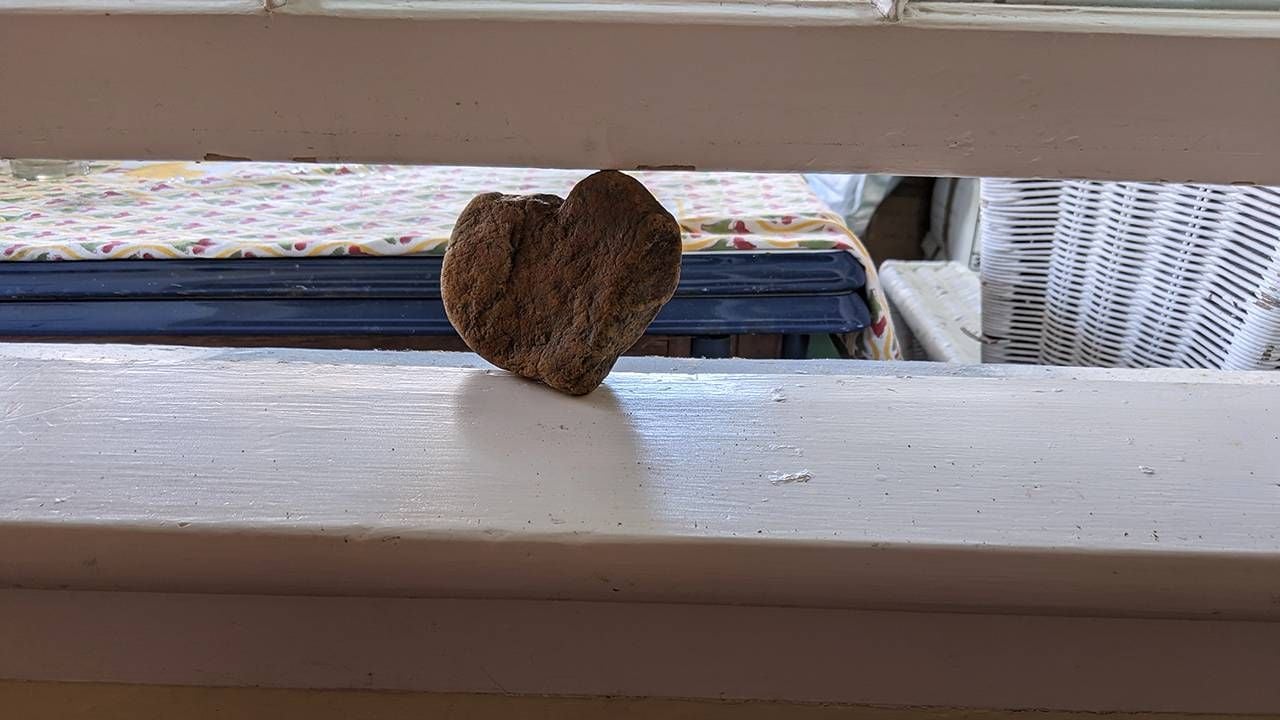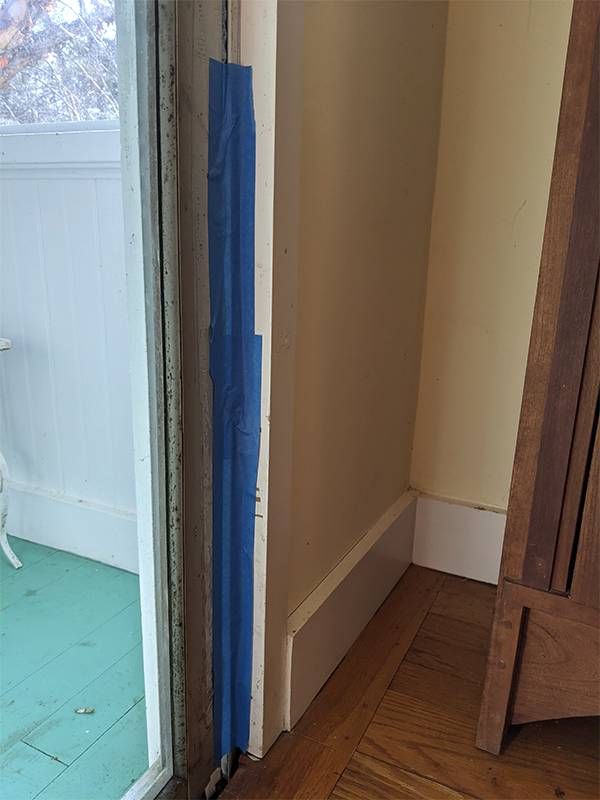What I Won't Miss About Home Ownership
I've loved my house, honestly, except for these four things
I've sold my house. It's a modest old farmhouse in the country (Massachusetts specifically), and I moved here from Manhattan seven years ago, after my divorce. Now I'm moving back to New York City, where I lived for 37 years, and I'm very excited. I've loved having a house of my own, but what I want to talk about here are the things I won't miss about it for a minute.

1. Waiting for The Guy
Where I live, the rich people have caretakers who find the electricians, plumbers, furnace maintenance guys, carpenters, house painters — all the skilled workers you need to help you take care of a house and property. The caretakers get the estimates, make sure they're at the house when the workmen come and oversee the work. It must be great to be a rich person. In my next incarnation, I hope to be one of them.
The rest of us here are our own caretakers. And what a job it is. I used to be a writer; now I'm a caretaker who writes on the side.
I've hung out, like a stalker, at the coffee shop, scanning the parking lot, waiting for a van that says "Electrician," so I can pounce on the driver when he walks through the door.
I have spent entire days in search of a house painter, or a person to re-tile the section of the bathroom wall whose tiling had come loose. Hours on the phone calling one unavailable handyman after another, hours buttonholing people on line with me at the Post Office to ask if they can recommend someone to get rid of the hornets' nest under the eaves that has grown to the size of a basketball. I've hung out, like a stalker, at the coffee shop, scanning the parking lot, waiting for a van that says "Electrician," so I can pounce on the driver when he walks through the door.
These men — I say "men" because that describes most home maintenance people where I live — are incredibly hard to come by, since most of the good ones are already taken by the rich people. You can't blame the workmen — the rich people have bigger houses and they're always doing things like adding a media room or a horse stable, so working for them tends to be an ongoing proposition.
This is how in-demand local workmen are: I have a friend who will not give me the name of her handyman because she's afraid he'll get too busy at my house to come to hers. If she needed a handyman, I'd give her the name of mine if I had one, which I don't. But I understand her reluctance, I really do.
When I finally find someone who will help me do whatever, I have to arrange my day so I'm there when he comes and there while he works and there to pay him when he's done.
Many is the day I've spent with one ear cocked, waiting for one guy or another to show up and then sat at my desk with furnace repairmen underfoot or the sound of chain saws outside my window or the pounding of hammers over my head.
I don't want to sound ungrateful; I owe everything to the men who have helped me. Oleg, the house painter, cleaned the leaf-clogged gutters I was too scared to scale a tall ladder to get to; Chuck, my plumber, his fingertips cracked from decades of working outside in the cold, has come on frigid mornings when there was no hot water. And Jim and Carter and Keith and the other Keith and Gonzalo and so many others — all of them have saved my house from falling into dereliction, saved my hide.
I think they'd understand if I told them how thrilled I am not to need them anymore. I can't wait to have a super to call. Let him find the guy to replace the cracked windowpane. Let him wait for the tile guy to show up.
2. The Neverending Appliance Repairs
Owning a house means owning many, many appliances and machines, which means buying them and repairing them and replacing them. My lawnmower, for example, had to go to the shop for repairs twice in the year since I bought it. Twice!
I don't care if I never own anything again. That sounds rash, I know, but I mean it.
Where I live, just the visit when the repair guy comes and diagnoses the problem with your refrigerator or washing machine costs something like $80. Sometimes the problem is that you need a new gasket, which means another visit and another, say, $100. But nine times out of ten, the problem is that you need a new refrigerator or washing machine.
I feel rich just thinking of the money I won't be spending.
I hate it that appliances only last five or so years now — if you're lucky! — and I resent it deeply every time I have to buy a new one.
My new apartment doesn't have a washer or dryer. Goody. I'm happy to use the laundry room in the basement. The landlord will have to buy new ones when they break down, which they will, and sooner than they should. I know — I'll have to pay a fortune in quarters to use the machines in the laundry room, which will eventually amount to what a washing machine and dryer cost. But I don't care.
3. The Bills
Apart from willingly wasting many quarters in the laundry room in the years ahead, I feel rich just thinking of the money I won't be spending. Homeowner's insurance and property taxes and heat (oil heats my furnace and costs me at least $500 a month during the winter), of course. But, more painfully, the endless surprises that ambush me every year.
I lost six trees in the last two years to the ever gustier, more intense storms we now have in New England (thank you, climate change!). So many trees that I am now on a payment plan with my tree-removal company. I pay $300 a month, and I'll be done paying sometime in… 2024.
It took me two years to pay off the $17,000 bill for my septic system. And when my furnace stopped working on the coldest day of the year, insurance paid only a third of the $13,000 for workmen to install new pipes to replace the ones that had burst. Last summer, I had one side of the house painted. It cost $3,000. My intention was to have the other three sides painted too, but I just couldn't swing the $12,000.

I could go on — the radiators that started to weep and had to be replaced; the water tank that had to be replaced; the old oil tank that had to be replaced; the old wooden gutters that had to be replaced. You get the idea.
There are other things I'd rather spend money on: Visiting my two grown kids, who live in other parts of the country. The occasional lamb chop. Theater tickets. Seeing The National Memorial for Peace and Justice in Montgomery, Alabama, and the water lilies in Monet's garden at Giverny.
I hope I don't sound whiny, or clueless about my place of relative privilege. I am lucky to have had a house to complain about.
But if I hadn't sold my house, I'd be looking at a future in which I would spend most of my available income, and a sizable slice of my savings, taking care of it. Neither of us is getting any younger, and both of us will need more, not less, tending to as time goes on. Sooner or later the vicissitudes that come with age — illness, hip replacements, whatever — will come for me, and I'll need money.
I'm going to miss my screened porch, and my big backyard. I'm going to miss the way the afternoon sun streams in through the windows in the living room. What I won't miss is the feeling that I'm not able to do right by the house.
4. Feeling Bad
It pains me every time I pass by the sliding glass door to the porch and see the slit of open space between the lower half of the door and the doorway where they no longer meet. In the cold months, I seal the opening with packing tape — not a great look — but this isn't even what makes me sad. What makes me sad is that with all the other repairs that cried out for getting done, this one didn't make the cut. I had to think about what I could afford, and new sliding doors were above my pay grade.
The kitchen cupboards and drawers, a '60s addition, are made of laminated particleboard, and the particleboard is slowly giving up the ghost; little pieces sometimes fall onto the floor.
The new owners tell me they have lots of renovation plans for the house, and that makes me happy, too.
Then there are the three windows I prop open with rocks because they slam shut if I don't. And the weird, poltergeist-y window that won't stay shut; I slam it shut, hard, and the next day it's sprung open. The only thing that keeps it shut is duct tape, lots of duct tape.
Poor house, I think, you deserve more than someone who can barely manage triage for the problems that are the most pressing and tape for the rest. You deserve to have your two bathrooms redone! You deserve a new kitchen!
But there's also this other voice in my head, the one that looks at the tricky windows or the frays in the screens on the porch and says, "Wheee! Not my problem anymore!" And that voice makes me feel light, and unencumbered, and happy to be moving on.
The new owners tell me they have lots of renovation plans for the house, and that makes me happy, too. They're younger than me and have way more money. They're lovely people. They've even offered to let me stay in the house sometimes when they're not here, which is beyond generous.
I'm going to take them up on it. "Won't that feel weird?" my friends ask me. "It won't be your house anymore. And they'll change it!"
"Thank goodness," I tell them. On both counts.

